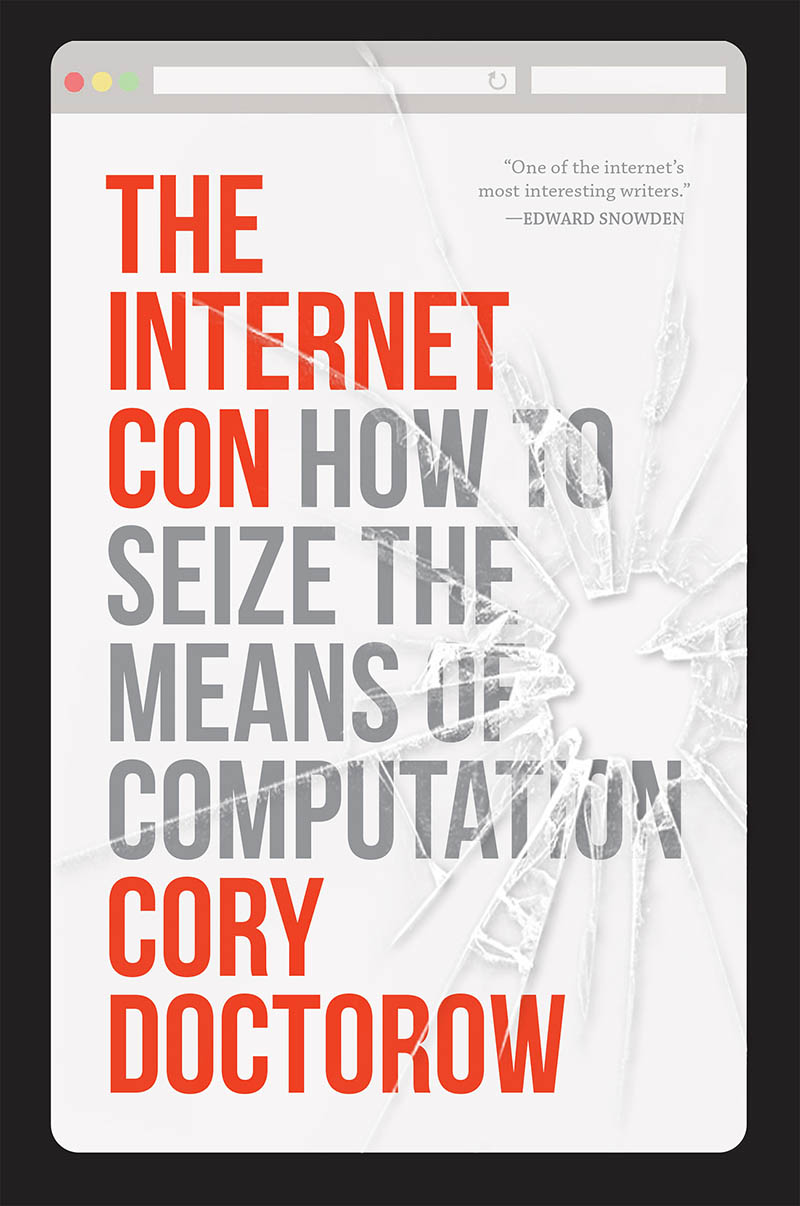[the notes from the book were retrieved with kobogarden, with the purpose of aiding to create a map of the ideas the book left me. The full list of book highlights can be found here.]

Seize the means of computation is a very good slogan. The book revolves around the concept of interoperability — it might sound rather alien, but it is a central trait of all our technological interfaces. In abstract, any two devices — any two technological artifacts — can potentially communicate; in abstract, it is all a series of zeroes and ones. If so...why do we find it so difficult to get a grasp on the current technological landscape? Why is the 21th century most relevant advancement — and I am not oblivious to possibly being ahead of myself, in particular due to we being barely a quarter in it — but why is it, and I mean the Internet and our global connectedness, seemingly so little aligned with our best interests?
I read the book between mid-December to early January. Just like with other technology-adjacent book, it is impossible not to feel the dialogue with the current state of affairs. If the previous read felt almost puerile at how little awareness it had to how things would change, the world of now feels like poor fiction at best, and rehashed history and politics of power at worse; but at least everyone seems a little more aware of the influence Musk and Zuckerberg have over our communities and democracies.
This is sort of what Cody Doctorow aims at explaining. It's a really good book — good journalism, too! And here's my feeble, albeit very earnest attempt, at contributing to the cause.
Interoperability lowers switching costs.
Interoperability allows us, the users of technology, to set the terms on which we use that technology.
It allows us to use the parts of products and services that benefit us, and block the parts that don’t.
In the first few pages, the author compares today's Big Tech (it almost completely overlaps with the term FAANG, encompassing Facebook, Apple, Amazon, Netflix (?) and Google) with the autocrats of trade of yore, contextualising the current monopolies with the trust and antitrust dynamics (and some interesting lore on Robert Bork). These dynamics are important for the overarching argument — they're monopolies, after all! — but Big Tech might be even different still because they control the means of computation — something that gets more and more true and relevant as the new cabinet takes over in the US, with such powerful backing and enthusiasm by Silicon Valley and adjacent fields.
He then shows how Facebook based their strategy of user retention by abusing the concept of switching costs: one would not want to leave Facebook if the costs of switching were too high — and this happens, for example, by making it harder to retrieve our data or to have access to the community that we built, or partook on. In fact, the Internet, right now, feels like a massively unwelcoming place, full of ads and walled-gardens, unsolicited advice and bad user experiences.
The problem with Mark Zuckerberg exercising total, unaccountable dominion over the digital lives of 3 billion people isn’t merely that he is incredibly bad at that job.
The real problem is that job should not exist. No one should hold that much power. We don’t need a better Zuck. We need to abolish Zuck.
That’s where interoperability comes in.
There's some context on EU's Digital Markets Act, which is an attempt at regulating the monopoly position and allowing for interoperability, insights into the right-to-repair movement (something so simple, and yet so seemingly inaccessible — at the time of writing, John Dewey's tractors had not yet been formally sued, and its case is one of the strongest examples for the movement) — and there are many other arguments for more independence and regulation on Big Tech. Some particular problems, like content moderation, have since become more relevant: recently, both X and Meta have taken big strides in taking explicit political stances, and reducing diversity in their content moderation teams — if not or removing them altogether. In general, it's high time we all realise Big Tech has almost never had our best interest in mind. A similar argument to the following was made by Maggie Appleton on her talk about LLM-driven development — hers had the user experience in mind, but at this point in time it is becoming very clear it's not just about that anymore.
Technology design choices are made in high-income nations with stable governments, at least the pretense of the rule of law, and reliable electricity and internet access, and then they’re shipped to the Global South where those design decisions utterly fail.
| Title | The Internet Con |
|---|---|
| Author | Cory Doctorow |
| Publisher | Verso Books |